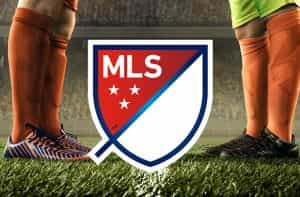In order to prevent the phenomenon of racism in stadiums, the government and sports institutions launched an anti-discrimination initiative. This is an important step: Let’s see what commitments have been made.
Commitment of the Football Federation and its institutions
Not wearing numbered shirts with political or discriminatory references (e.g. number 88 of fascist origin), very high alert regarding flags, banners and symbols It calls for hatred of Jews, Nazism and fascism. These are two of the measures hoped for by the protocol developed by the Ministry of Sports together with the Italian Football Federation, with the aim of preventing such an unacceptable phenomenon as racism, which is increasingly widespread in Italian stadiums.
The prepared document was called “Declaration of intent to combat anti-Semitism in football” and was imagined as a mechanism by which all the different heroes of Italian football would make a direct commitment to combat discrimination. Among the many measures that we will now see in detail, the fight against the use of racist language in general is also mentioned. Intention to postpone matchesAs soon as racist chants rose from the stands, without the hesitation of the past.
New rules against racism in stadiums
Again, there is the idea of working with more specific attention on a range of communication products. Raising awareness on the issue among girls and boys younger. One of the most pressing problems on the racism front in Italian football is the movement’s inability to present itself convincingly, especially to younger generations, as testimonies against intolerance.
Between important parts of the document As mentioned above, there is talk about the need to avoid making distributions to players and including them in the official numbering. T-shirts with racist numerology. First of all, an example is the number “88”, which directly reminds of the fascist and Nazi world.
Also important is the idea of improving the already existing Code of Ethics by adding a clear passage on the definition of anti-Semitism. In this sense, the protocol requires a much stricter sanction mechanism than the current sanction mechanism. We hope to be able to implement measures in the same direction. bans organized support groups from displaying Celtic crossesswastikas and discriminatory symbols in general: Will clubs, especially Verona and Lazio, be able to keep their fans away in this respect?
Pay attention to the language used off the pitch, with a particular focus on the social posts of players and members, as well as statements made to journalists and in public. Additionally, through this declaration of intent, Creating a culture of respectTo impose solidarity on those affected by racist acts in stadiums.
Of course, words are not enough, and therefore the hope expressed in the document is to develop a very precise disciplinary framework regarding possible sanctions against clubs whose fans insist on promoting racist and anti-racism over time. Semitic attitudes. From a technical perspective, the main help can come from technology and that is why the Football Association and the government are considering strengthening video surveillance systems, without ifs or buts. heroes of possible racist attacks. Another step that needs to be taken is the step of prevention, given that many things can be changed thanks to education: visits to Holocaust memorials and Auschwitz, as well as readings and information about apartheid in South Africa, for example, can help establish a football The club was finally free of racism.
The most serious incidents of racism in Serie A history
It is worth remembering some cases that inevitably became more recent (because it was more difficult to show racist incidents in the past, there were not hundreds of cameras to immortalize everything) that unfortunately became historical. A plastic display of cultural backwardness Our football’s award was presented in 2014 by Carlo Tavecchio, then president of the FIGC, football’s highest institutional authority in Italy.
At that time, in his presidential candidacy speech, Tavecchio described non-EU football players as “Opti Pobà, who used to eat bananas, now plays for Lazio.” A statement that needs no comment. Mario Balotelli deserves a separate section; Since becoming a national-level football player in his childhood, he has had to face constant attacks on his skin color over time.
Balotelli’s Verona v Brescia episode in November 2019 remains historic in this sense. Another howl coming from the Verona corner As soon as he touched the ball, he stopped the game and threw the ball towards the stands. Luca Castellini, Hellas Verona’s ultra leader and Forza Nuova’s national director, spoke of “folklore” rather than racism in this case, and reduced the chants for Brescia’s number 9 to entertainment. This probably reveals all the difficulties Italian football has in dealing with itself; a movement that does not often classify racism as a joke phenomenon.




